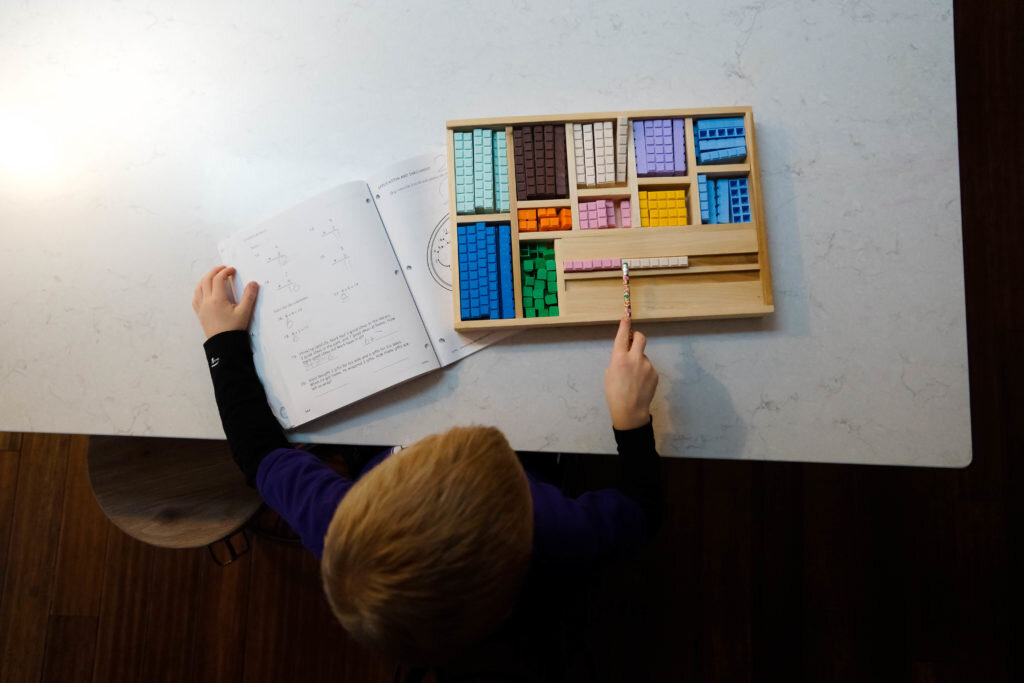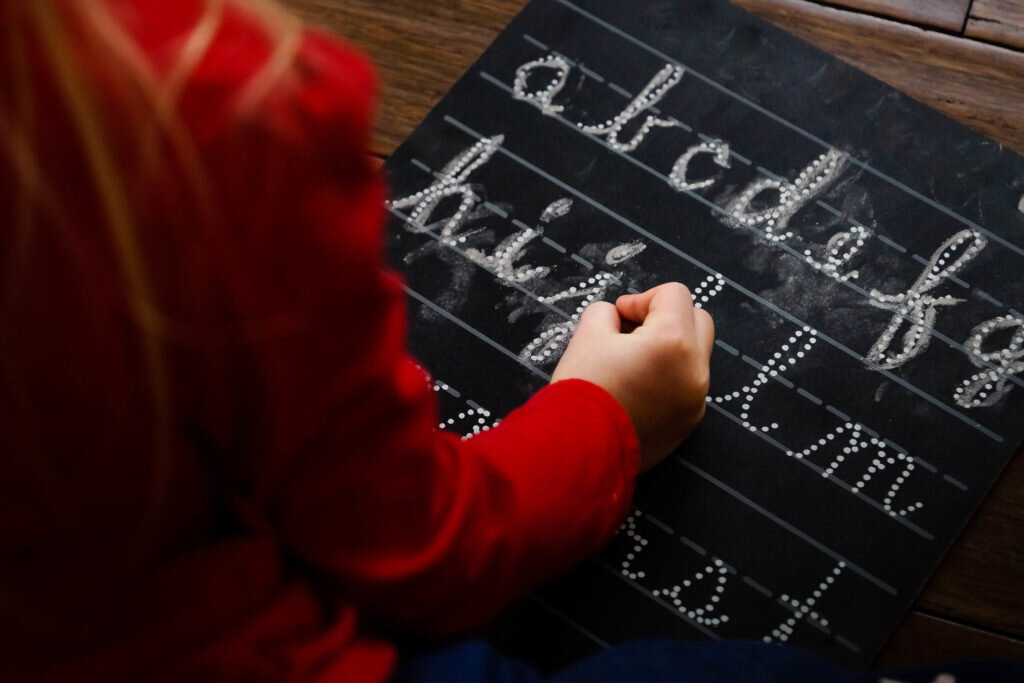Back to (Home)School
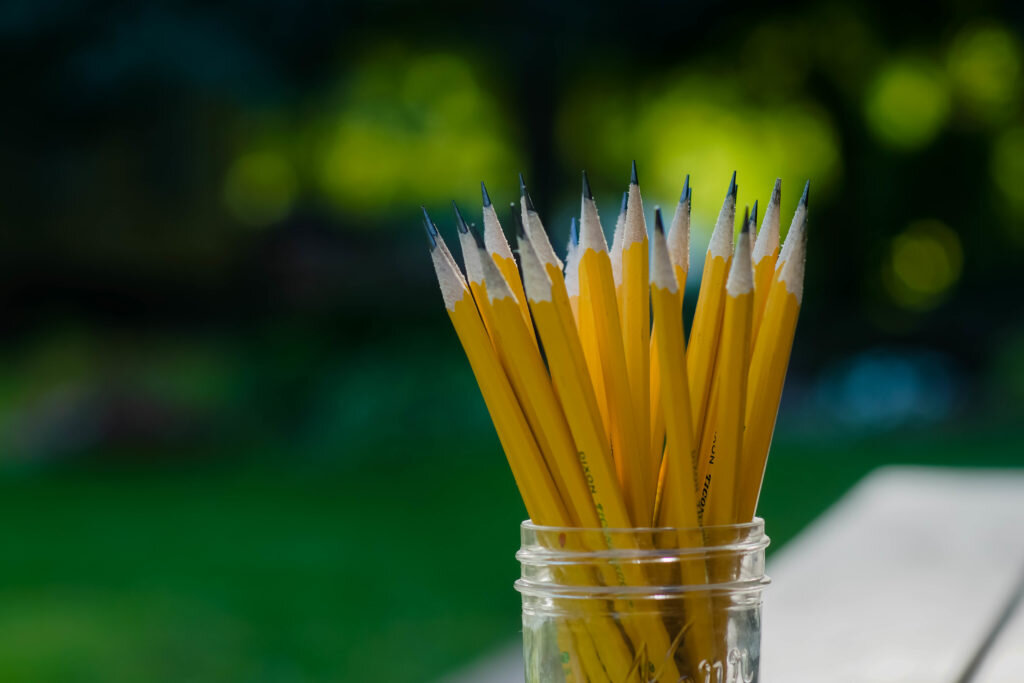 This post contains affiliate links. Please read my disclosure for more info.
This post contains affiliate links. Please read my disclosure for more info.
We are back to school!
With each new school year comes a fresh start. New beginnings. New ways to do things. New ways to think things. New books. New supplies. New rhythms & new schedules. Hopes for a successful new year. Much of our success depends on the curriculum chosen.At the end of every year, I look back on how our curriculum worked for us. Where were the holes? What was too much? Who needs more of what, and what was lacking? And that's when I pick out new curriculum. I'd like to share what our curriculum choices are for this homeschool year. I should start by saying that my boys are 7th, 5th, & 3rd grade, with a little sister who is in 1st. My teaching/parenting style strongly coincides with Charlotte Mason and her philosophy, with a bit of Waldorf inspiration. That said, here we go!
MATH:
We have used Math-U-See since the beginning of our homeschool adventure (my oldest was in third grade). I chose it because it seemed to address all learning styles. The math manipulatives speak my language! It also appealed to me because Mr. Demme, the writer/creator of the program, teaches each lesson via DVD, so I feel like they are getting more than adequate instruction. (But I still feel like an idiot, not remembering how to multiply and divide fractions.)
LANGUAGE ARTS:
Language arts is a bigger ball game. Up until this year, I have used Logic of English. I chose it because it is all about teaching phonetically, with an all-encompassing approach to learning. It is a beautifully put together program. I was impressed with learning that the phonograms work together to create words; words with rules, rules most of us have never learned. There are very few exceptions to our English language. This program helped me to make sense of our language, and it has helped me to teach my children how to speak, read, & write our, once-thought, non-sensible language. I would highly recommend the book, Uncovering the Logic of English by Denis Eide, even if you choose not to use the curriculum. It was extremely eye opening and explains the literacy crisis facing our nation.
"Denise Eide's multiple-award winning book reveals the phonograms and spelling rules that explain 98% of English words. The rules are explained in an easy-to-read, straightforward manner and illustrated with numerous examples."
(Side note: I pulled my oldest two boys out of public school, 3rd & 1st grades, and started them both at the very beginning of this program, just so there would be no holes in their learning. I recommend it!)
Correcting Missing Pieces
That said, as my older boys get into the middle school years, I felt like there were missing pieces to their language arts program. We still use pieces of Logic of English in our everyday, but I wanted more of an understanding of practices and instruction on writing specifically this year. Things such as sentence structure, letter writing, outlining, etc. That is when I switched to Language Lessons for Today & Writing Lessons for Today.I am very pleased with how this program is laid out. There is an emphasis on following direction, and for boys who need practice in responsibility, even though they are quite independent in everything else, this layout is a good fit. They need very little direction from me, which allows me to work more closely with the younger two. So far, I am happy with the scope of what they are learning, and I feel it is filling many of the holes that I've been aware of for the passed year or so in this department. My younger two are using this as well, and are enjoying lessons such as picture studies, poems, copy work, and nararation. All of these, I feel, help make the student a more well-rounded individual, as well as an educated little human. 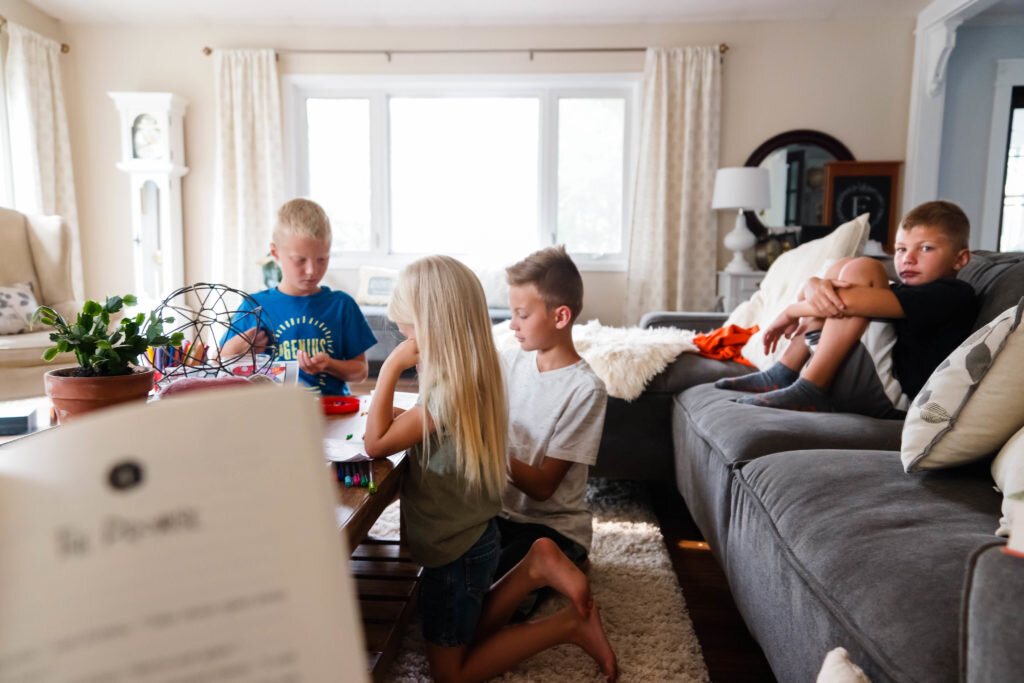
SPELLING:
In addition to our language arts studies, I use Spelling Power for my oldest three. The byline on the front cover reads, "15 minutes a day and this book are all you need to teach ages 8 to adult comprehensive spelling skills!" This is the bare bones, no-nonsense, spelling practice I was looking for. There is a bit of reading for the 'teacher' in the beginning, but it's doable. Do not skip these pages. It walks you through how to not only use the book of lists, but determine where each of your students should be placed. So far, I am sold. I'm excited about the progress I've seen in my boys, as well as a boost in confidence level, which is heartwarming. Again, one book, to teach all of your children. #winning
HISTORY & SCIENCE:
For our Bible lessons as well as geography and science, we are using Creation to the Greeks by My Father's World. MFW feels like a very comprehensive course and can easily become overwhelming to me. In one way shape or form, I have used this from the beginning, but have really learned what to use, when, and what to let go of. I am a box checker to a fault, but have learned that that approach does not work often for a peaceful school day. Although it is beautifully and thoroughly laid out, success does not come when all my pretty boxes are checked. I believe if I stick with this curriculum from now until high school (not saying I'm gonna homeschool until then ((I only commit to one year at a time)) BUT if I do, there will be no holes in their history timeline. I'm sure of it.I like to be thorough. The pressure this homeschooling gig puts on me, or at least I put on myself, is outrageous at times. My Father's World has really taken the guesswork out of it, and I'm so thankful for that. We are a fairly creative family, so we enjoy the hands on approach that MFW gives: crafts, meals, projects, as well as science experiments. They are each paired so well with the history lessons, but are not a necessity. This is something that we all do together at the table, on the floor, or somedays outside in the tree fort.
Our history lessons are strengthen by read-alouds
I also like to add readings from Story of the World by Susan Wise Bauer as they fit with the days' lesson. The children will usually color a related printout, or illustrate what they're hearing, as I read. The lessons come alive for my kiddos because this history book is in story form. They're retaining the information without even trying. Reading aloud is a staple of our day, and we all enjoy what this habit has done for our family.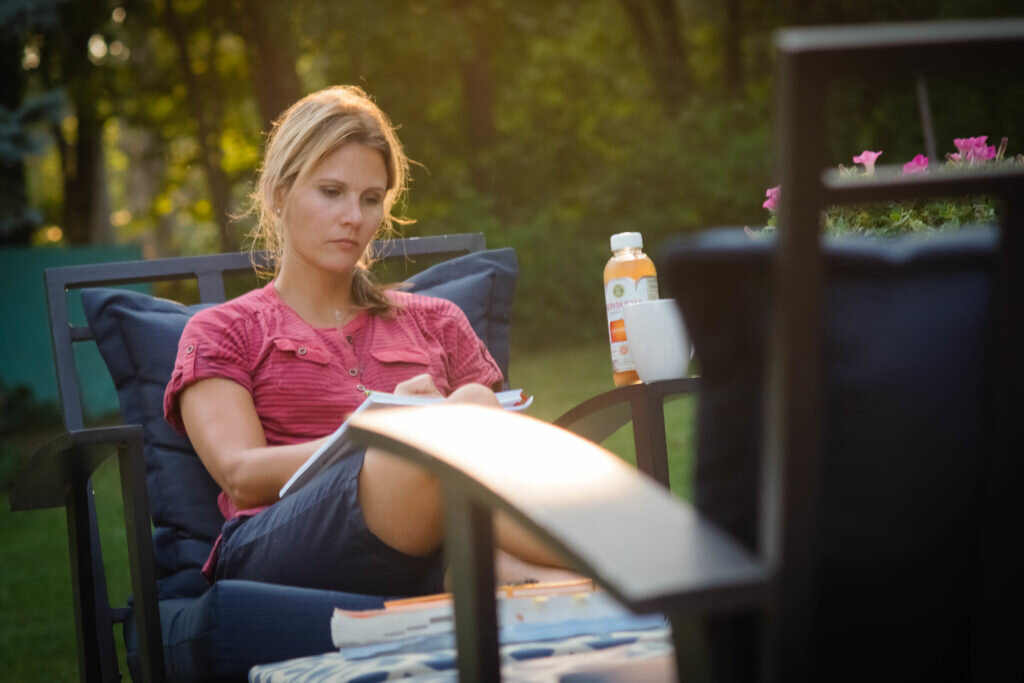 These subjects are the backbone of our school day. There is more to add, but that will be for another post. These are the subjects we shoot to cover throughout the week. If you have any questions, please feel free to drop me a note or leave a comment below. I'd love to go into more detail if you have specific questions. I believe we can learn so much from one another, and from one another's mistakes ;)Until next time!
These subjects are the backbone of our school day. There is more to add, but that will be for another post. These are the subjects we shoot to cover throughout the week. If you have any questions, please feel free to drop me a note or leave a comment below. I'd love to go into more detail if you have specific questions. I believe we can learn so much from one another, and from one another's mistakes ;)Until next time!

